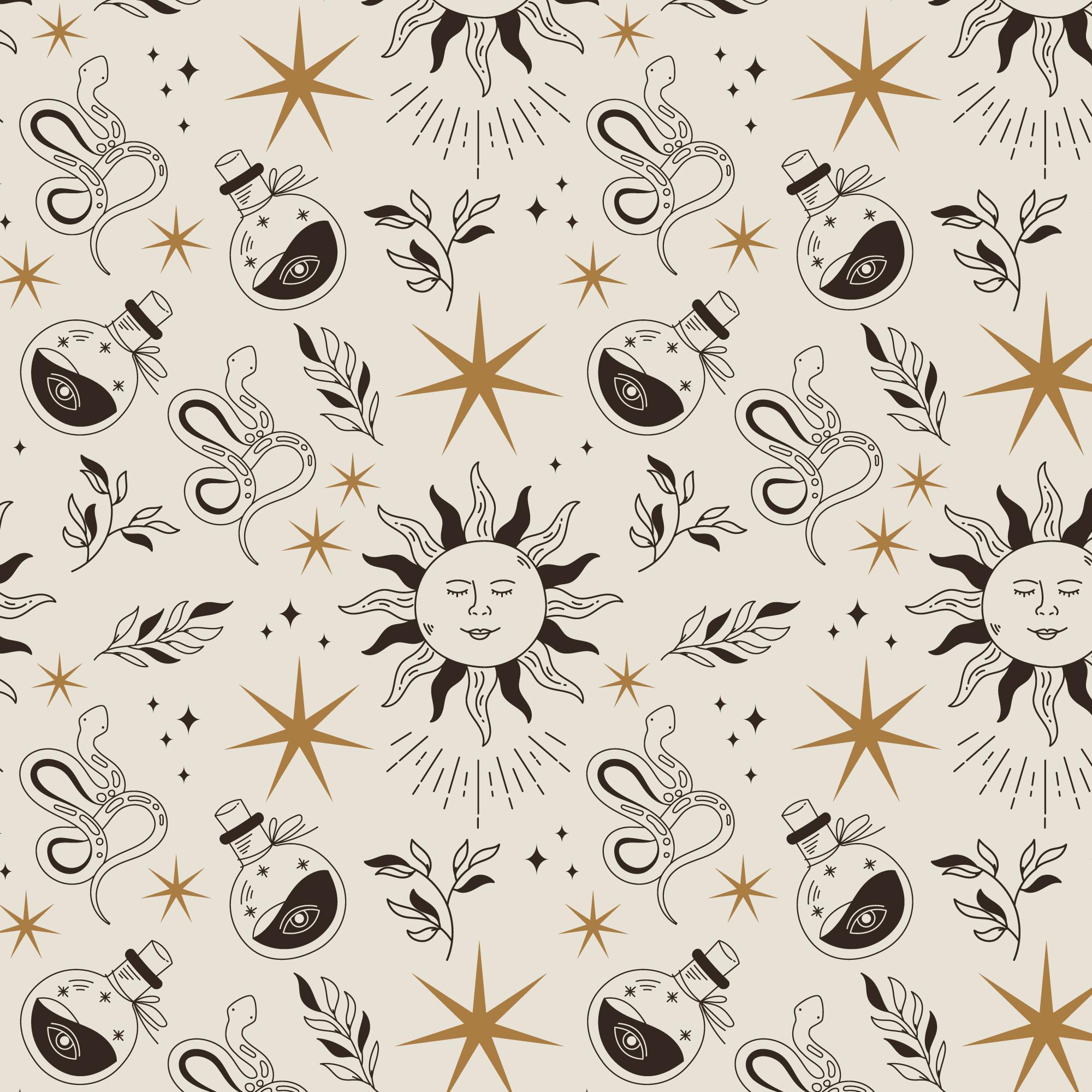
Tarot Cards as Feelings
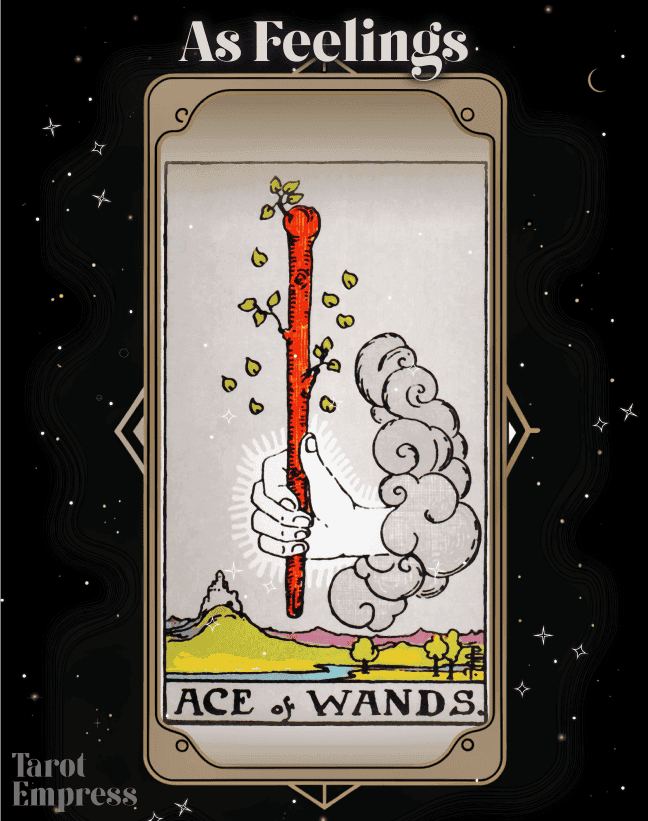
Ace of Wands as Feelings: Reversed & Upright Meaning of Emotional Flames in Relationships
When considering the Ace of Wands as feelings, it speaks to the fiery emotions and inspirations that can ignite within our interactions. Whether upright or reversed, understanding how this card influences emotions provides a deeper understanding into how we connect and communicate with others, offering guidance through the complex emotional arenas of passion, aspiration, and connection.
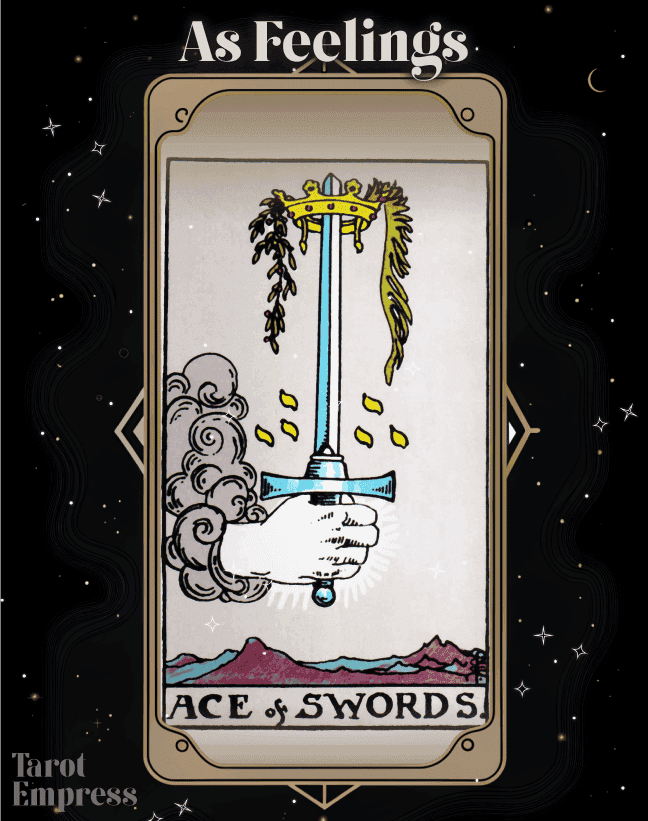
Ace of Swords as Feelings: Reversed & Upright Meaning of Truthful Communication
Ace of Swords, with its powerful symbolism of clarity and insight, offers valuable perspectives on emotions and interpersonal dynamics when it appears in tarot readings. Visualize the sword as an instrument that slices through confusion, leaving only the essence of truth in its wake. Through this narrative, let's understand how the Ace of Swords in both upright and reversed positions can influence one's journey toward emotional clarity and integrity in relationships.
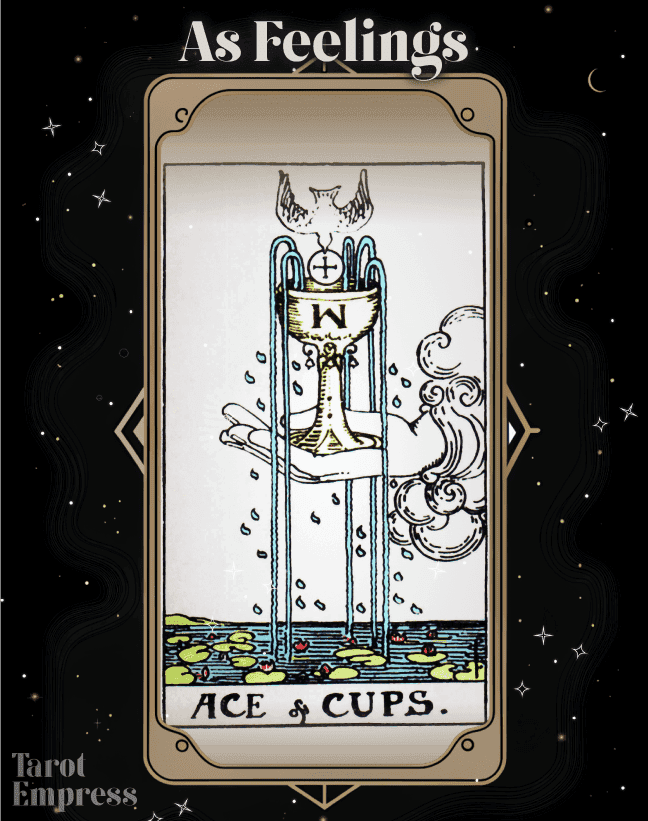
Ace of Cups as Feelings: Reversed & Upright Meaning of Unleashing Love
Ace of Cups, a significant card in the tarot deck, relates closely to our emotional states and fresh beginnings in personal connections. Understanding its upright and reversed meanings offers valuable insights into the feelings involved in various situations, including relationships and personal growth. As a vessel of emotional insight, the Ace of Cups holds the key to understanding and nurturing our hearts.
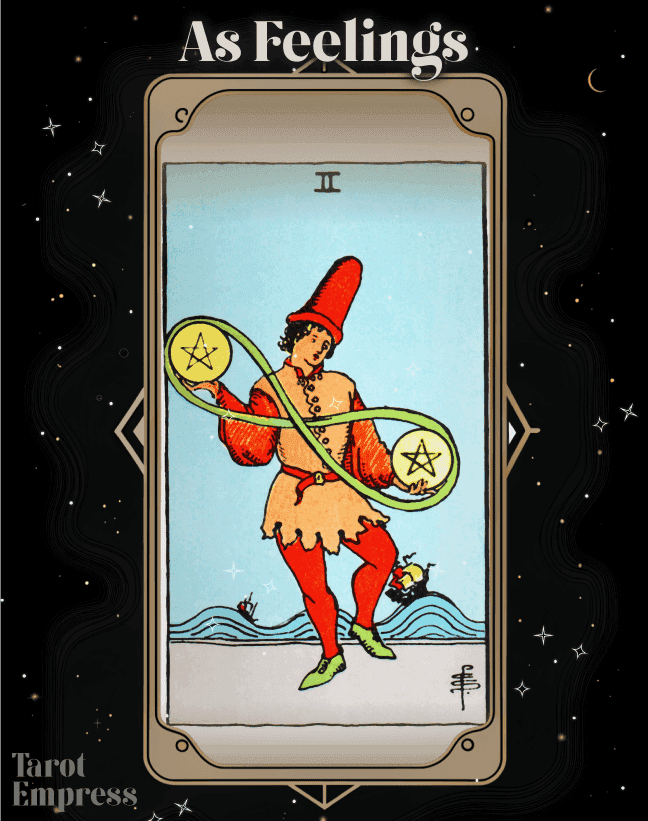
Two of Pentacles as Feelings: Reversed & Upright Meaning of Emotional Balance and Adaptability
Understanding the nuances of the 2 of Pentacles as feelings offers a valuable perspective on handling emotional variability, especially when assessing relationships. This card’s interpretation takes on different shades, whether it appears upright or reversed, delving into the subtle shifts that occur within emotional contexts.
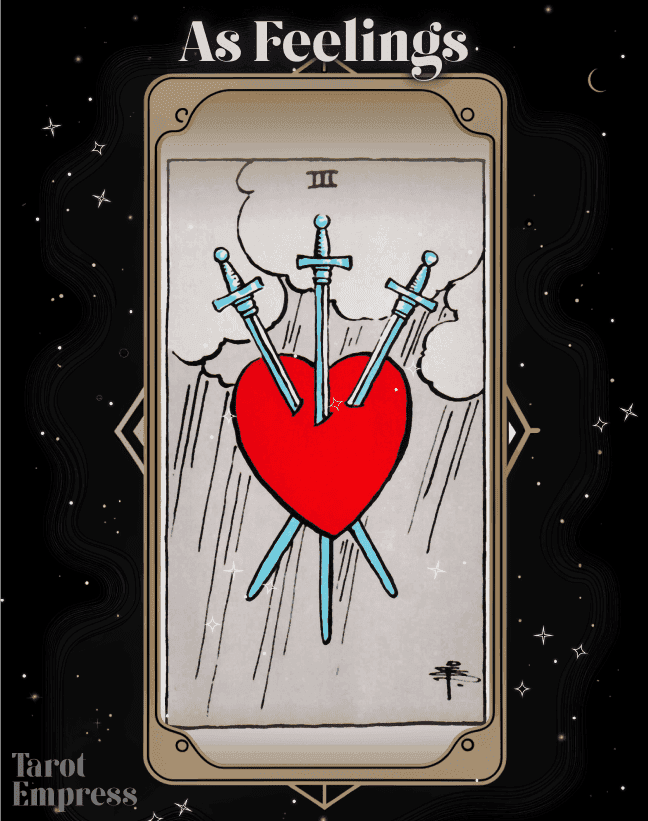
Three of Swords as Feelings: Reversed & Upright Meaning of Heartache and Healing
Understanding the 3 of Swords as feelings is crucial for those engaging in self-reflection and emotional growth. Whether reversed or upright, the card unveils a spectrum of meanings, especially pertinent regarding feelings and relationships. Let us look into the depths of its meaning and how it offers guidance during emotional transitions.
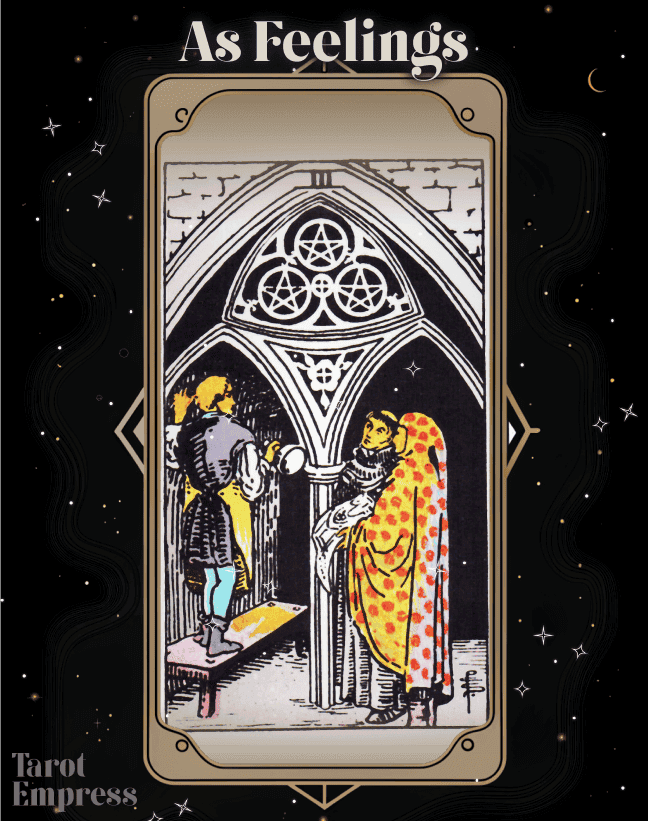
Three of Pentacles as Feelings: Upright & Reversed Meaning of Collaborative Emotions
Three of Pentacles card is often drawn during tarot readings concerning partnership and cooperation. When it comes to feelings, this card provides a lens through which to examine the emotional dynamics that arise from working together toward common objectives. By examining how its meaning shifts between upright and reversed orientations, we gain insight into the spectrum of feelings related to collaboration and teamwork.
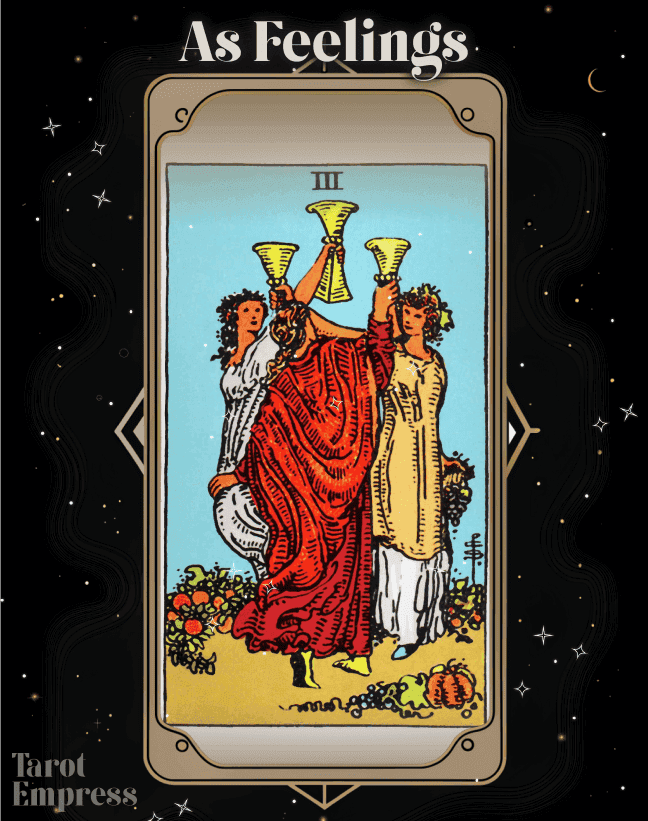
Three of Cups as Feelings: Reversed & Upright Meaning of Celebrations and Challenges in Emotional Connections
Three of Cups is a card that highlights the vitality of human connections, evoking themes of celebration and companionship. Understanding the 3 of Cups as feelings provides a glimpse into the shared experiences that define our relationships, capturing the energy of camaraderie, whether it is expressed in joy or challenged in disharmony.
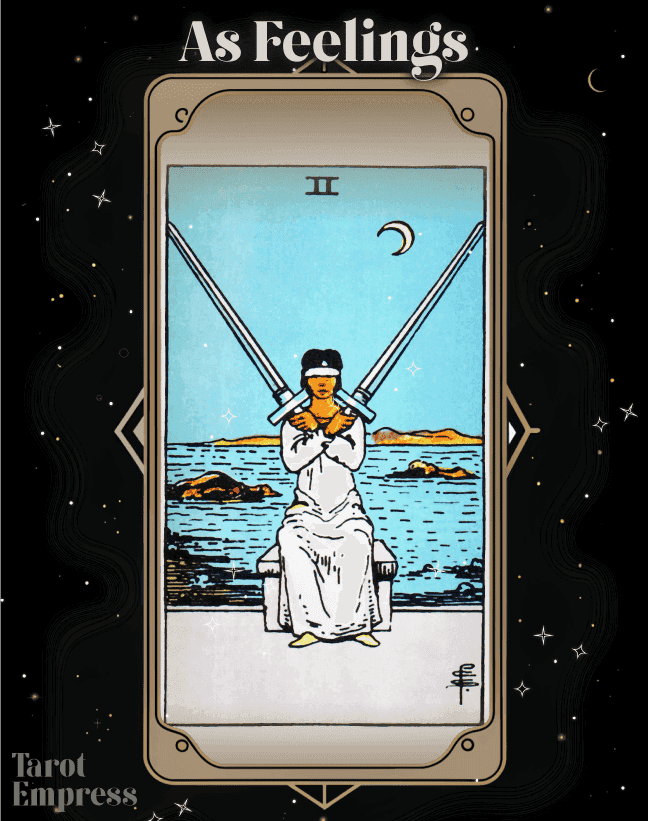
Two of Swords as Feelings: Reversed & Upright Meaning of Emotional Conflict and Balance
Two of Swords is particularly potent when it comes to illustrating feelings of internal conflict and balance. This card's depiction of emotional states varies significantly, depending on whether it appears upright or reversed. Understanding the nuances of the 2 of Swords as feelings is a key to gaining insight into the complexities of emotional indecision and resolutions in relationships.
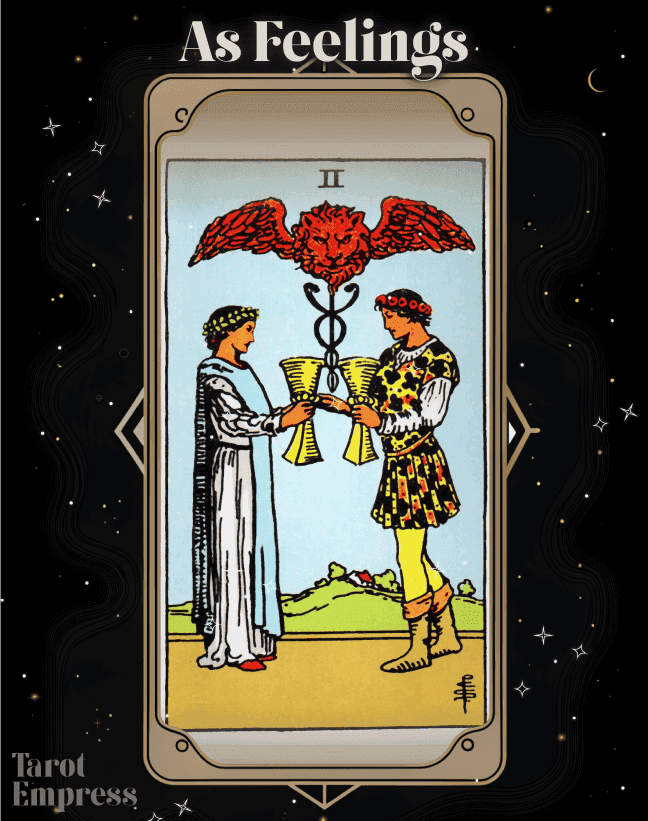
Two of Cups as Feelings: Reversed & Upright Meaning of Emotional Bonds and Connections
When considering the 2 of Cups as feelings, it becomes a symbol and a guide for understanding the harmonious or discordant energies at play between individuals. This card can appear both in an upright or reversed position in a reading, each offering a unique perspective on how emotions are interwoven within relationships.